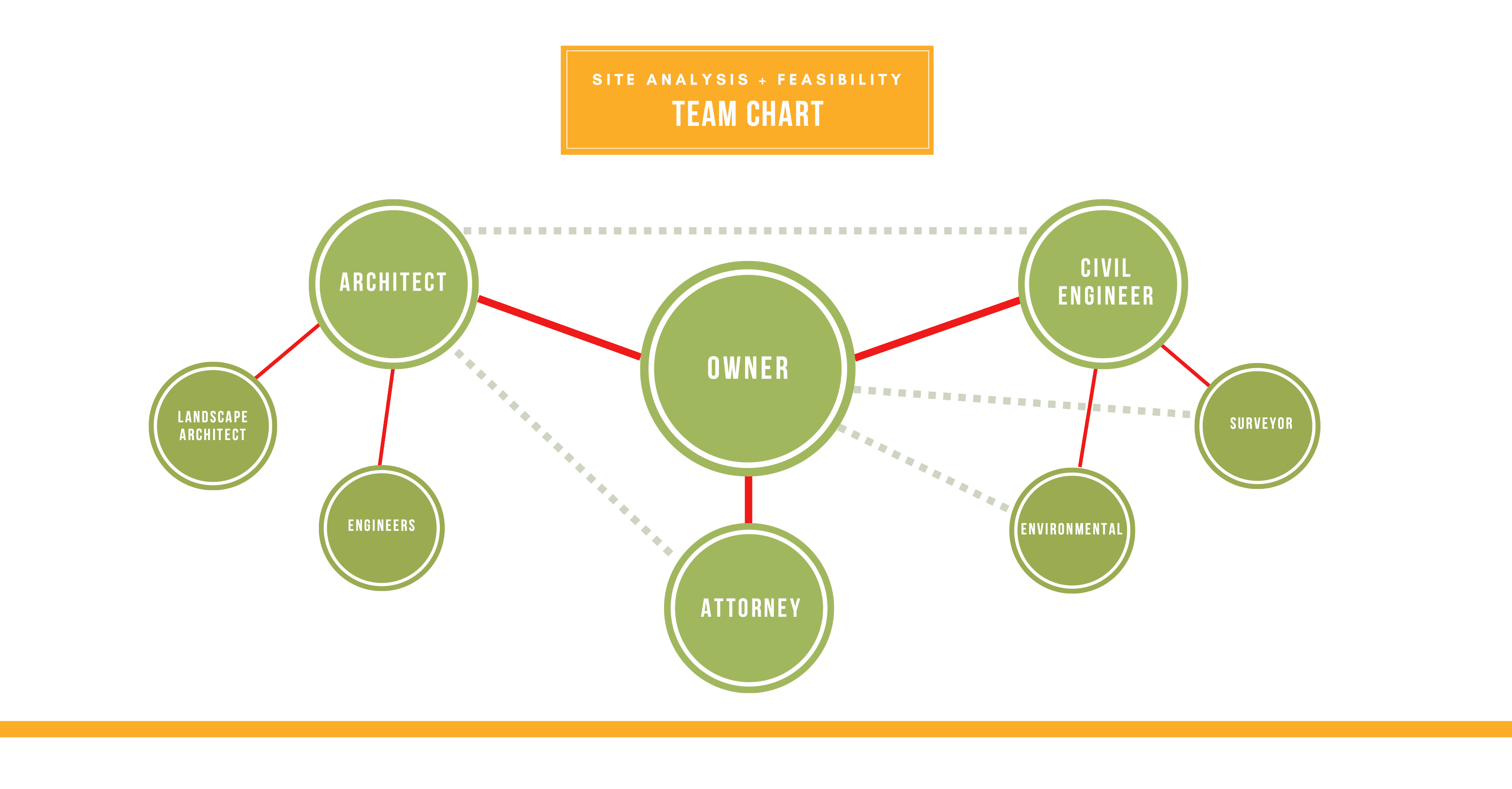 Once you’ve established that you need a site analysis and feasibility study, the next step is to assemble a solid team of professionals to help you.
Once you’ve established that you need a site analysis and feasibility study, the next step is to assemble a solid team of professionals to help you.
So, who do you need to hire? The three main branches of your team will include an architect, an attorney, and a civil engineer. It’s a good practice to hire your architect first. That way, he or she can provide recommendations for top attorneys, civil engineers, and other consultants. A good architect can assemble the best team possible to help you turn your concept into a viable project.
Our Principal Architect Karin Patriquin explains: “The exact number and configuration of people on a team will depend on the size and complexity of the property. For instance, an attorney may not be necessary for smaller projects, while on larger projects, each of the branches of the team will include several people.”
Your Site Analysis and Feasibility Team
ARCHITECT
Your architect will assist you in the design of the project, the application, and the approval process. The process begins by defining parameters of the project. Your architect will then explore various massing options to accommodate these parameters, considering the building’s use, parking, circulation, green space, environmental considerations, drainage, and other requirements. The goal is to optimize the use, scale, and mix of components. To this end, a good architect will use computer models and renderings to evaluate options and to visualize the scale of the project within its environs. At the conclusion of the site analysis, a full feasibility and site planning report is produced with input from specialized consultants. Under the architect’s umbrella, there are a number of important consultants:
- Landscape Architect
- MEP/FP Engineer
- Structural Engineer
- Geotech Engineer
ATTORNEY
Your attorney should be specialized in real estate, land use, and environmental law. They’ll assist you in legal matters such as property investigation and acquisition, title search, environmental cleanup requirements, etc. If possible, find an attorney who is local to your project site. They’ll be more familiar with the protocols for the town or city where your project is located. This will save you time and money over the course of the project.
TIP: For smaller or less complex sites, the services of an attorney may not be necessary.
CIVIL ENGINEER
Your civil engineer will be responsible for putting together the site development plan, based on a current survey. They’ll locate new and existing buildings and other structures, utilities, vehicular and pedestrian circulation, rough areas of landscaping, along with a schedule of data. Under the civil engineer, or contracted directly by the owner, these consultants provide specific expertise:
- Surveyor
- Environmental Engineer
“A coordinated effort between our client, the attorney, the civil engineer and ourselves as architects is key to a successful project. The work we do at the feasibility stage is the basis for the design of the resulting buildings and site. It’s essential that this team works well together, to ensure approvals from all of the regulatory bodies.” – Karin Patriquin
WHO ELSE?
There are other professionals who will add valuable economic insight to a feasibility study if they’re not already on your staff. They can provide market comparables, current lease or buy/sell rates, or budget estimates of proposed construction.
- Market Analyst
- Estimator or Contractor
To learn more about the entire site analysis and feasibility process, read the previous blog post from our series: What You Need to Know About Site Analysis and Feasibility

